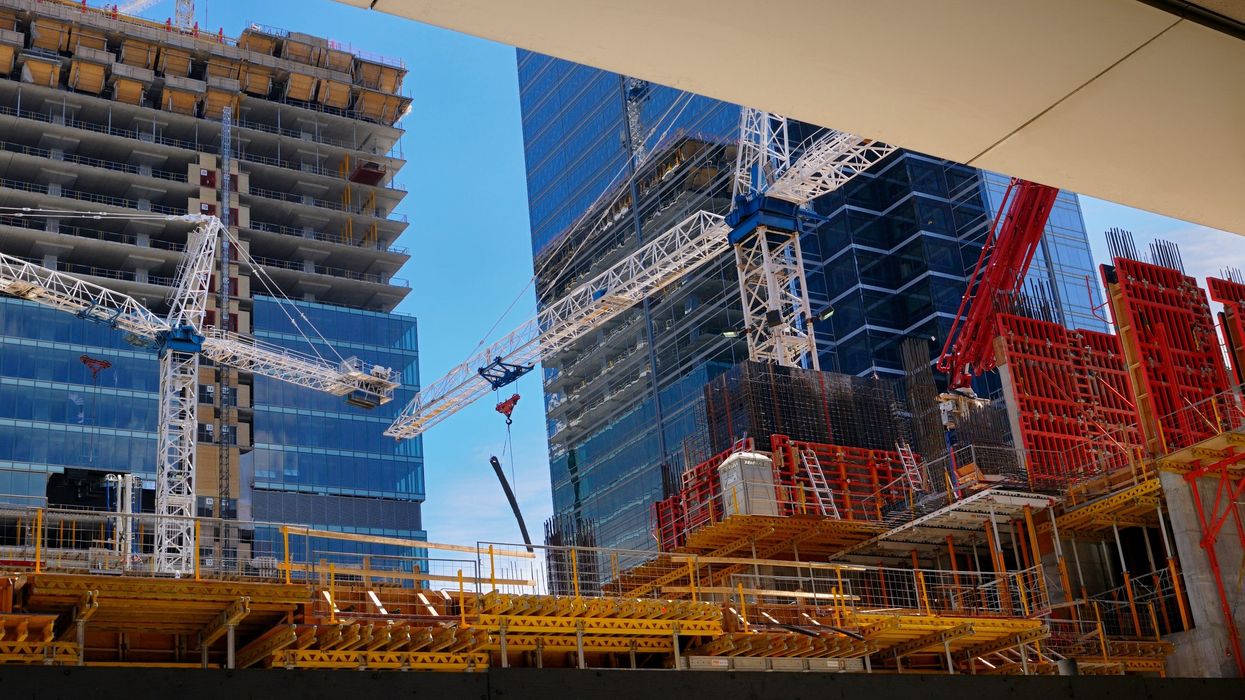Be careful what you wish for, the Chinese proverb warns, you just might get it.
The provincial government's decision to reform the Ontario Municipal Board beyond recognition could be the best thing that ever happened to planning in these parts — or the worst.
Though details have yet to be revealed, Premier Kathleen Wynne clearly hopes to tamp down growing civic resentment over the OMB's perceived anti-neighbourhood bias. For more than a century, the quasi-judicial body has had final say over all matters relating to planning across the province. That means everything from the smallest rural village to Canada's biggest city, Toronto.
The board, whose members, unelected and largely nameless, wield enormous power, is viewed by many as Ontario's de facto planning authority. It has a long history of overruling and infuriating municipal governments, urban and suburban, as well as ratepayers organizations and even on occasion the development industry. Though claims of the OMB's pro-development prejudice are exaggerated, there's no doubt the agency routinely ignores the stated goals of cities and towns, let alone the wishes of local residents.
Empower NIMBY forces
So it's no surprise reactions to the proposed reforms vary. Some critics fear defanging the OMB will empower the NIMBY (not in my backyard) forces who typically oppose change of any sort in their neighbourhood, even if that means something as benign as a low-rise condo on a major artery. Others fear weakening the board will lead to an onslaught of development applications by builders hoping to take advantage of overwhelmed civic planning departments.
Developers worry that disempowering the board will mean local councils, under pressure from voters, will be more inclined to cave to NIMBY demands. On the other hand, municipal planners applaud OMB reform. It is, they argue, a bold move that's long overdue. They are also thrilled by the prospect of gaining the authority they feel is rightfully theirs.
As always, the truth lies somewhere in between. There are valid concerns on every side. Clearly, rampant NIMBYism must be kept in check if towns and cities are to grow and evolve. At the same time, civic politicians and planners will have to grow up fast. Though they like to complain about how the OMB has undone their best efforts for decades, in fact the board is a convenient scapegoat for both. It has allowed them to avoid making the tough decisions and risk the wrath of residents.
“We want to ensure the land use planning system is working effectively for everyone," says Bill Mauro, provincial minister of municipal affairs. "Our proposals would empower communities and municipalities to better determine how their neighbourhoods develop in the future.”
Geoff Kettel, co-chair of FoNTRA (the Federation of North Toronto Residents' Associations), makes no secret of his delight with any move that would diminish the OMB.
"For developers, it's just the cost of doing business," he says. "The system favours developers because it relies on expensive expert witness — lawyers, architects, planners — that few residents' groups can afford. That means it's weighted against neighbourhoods. Residents don't know where to turn. The OMB doesn't give you any advice; it tells you to read the rules and they're incomprehensible.”
City planners overworked
Kettel continues: “The other problem is city planners. They are overworked and don't have the resources to put up a good fight at the OMB. If council really did make the final decision, planners would put their best effort forward. If the credibility of the planning process is restored, planners could spend less energy fighting the OMB and devote more energy to planning."
In contrast, developers claim growth will grind to a halt if the OMB is slowed. They are also concerned that hobbling the board will make it vastly more difficult to meet the demand for new housing.
“If this new tribunal puts local politics ahead of Smart Growth planning," warns Joe Vaccaro, CEO of the Ontario Home Builders’ Association, "it will only serve to empower NIMBY councils to make planning decisions to get re-elected."
Beholden to constituents
But as the Regional Planning Commissioners of Ontario noted last year in a report on OMB reform: “The threat that without an OMB local councils may become too beholden to constituents who don’t want to see any change in their communities is not an empty one.”
Still, there are changes that would obviously help level the playing field. One would be to restrict the de novo hearings that allow developers to bring a new proposal before the board after local authorities have rejected an earlier version. Removing this provision would go a long way to eliminating the developers' ability to do an end run around the city in their search for a more favourable outcome at the OMB.
Proposed legislation would require the board to focus on whether the city follows its own rules and/or provincial guidelines. In this way, the OMB rulings would strengthen municipal decision-making, not provide a way around it.
Appeals court
Though much remains to be seen, the province's intention to change the name of the OMB to the Local Planning Appeal Tribunal indicates its desire to remake the body as a kind of appeals court rather than a planner of last resort.
Also unknown is how municipalities will respond once the ball is in their court.
If the example of Toronto is any indication, problems will continue, but we won't have anyone to blame except ourselves.





















